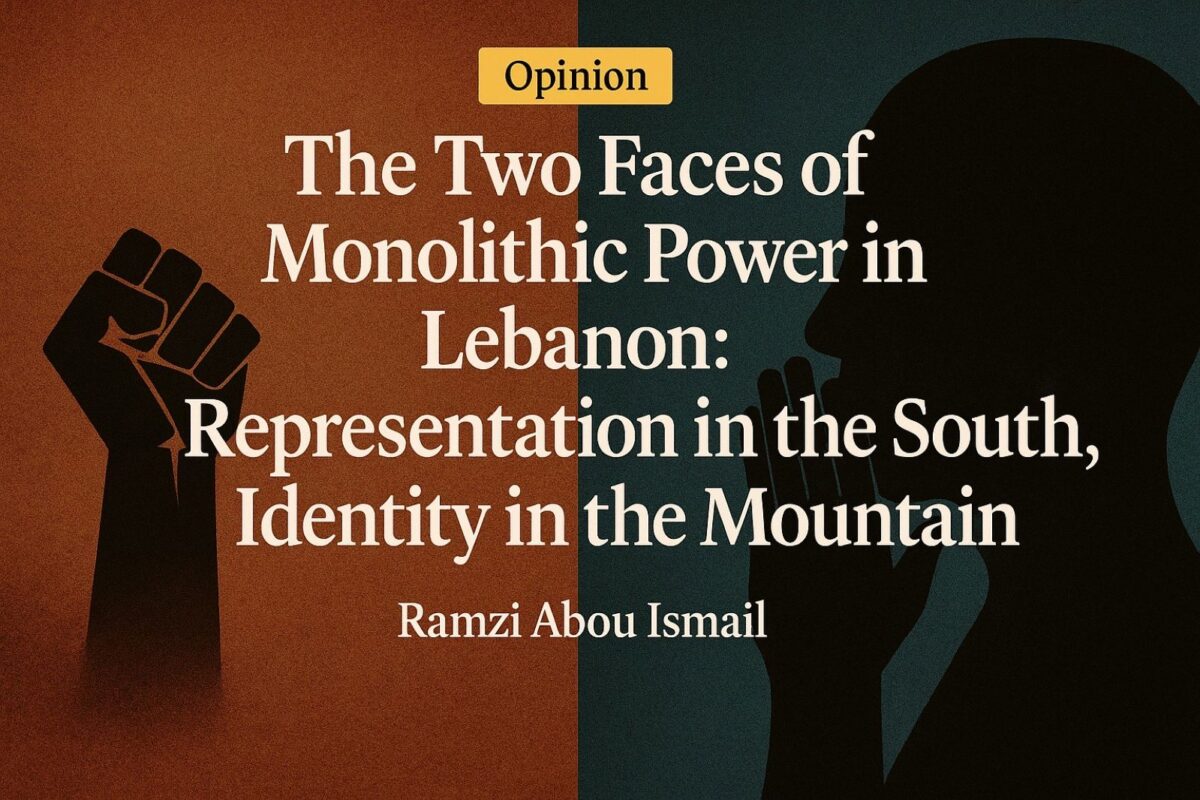
Communities in Lebanon rarely break with noise. They break with silence. A silence that discourages the wrong questions. A silence that hides behind words like “dignity” and “respect.”
A silence that surrounds the past with a reverence so thick it becomes untouchable.
In Lebanon, monolithic control does not always arrive as a raised fist. Sometimes it arrives as a gentle hand placed over your mouth, whispering, “Not now. We don’t say these things. This is how our elders taught us.” And sometimes, it arrives as a clenched one: “Who are you to break ranks? And who stands with you other than the enemy?” Between these two gestures – the whisper and the warning – lies one of the most important and least-discussed truths about communal power in Lebanon: our communities are governed not only by political monopolies, but by identity monopolies. And each is dangerous in its own way.
The Hard Monolith: Representation as a Closed Circuit
Among the Shia, monolithic power remains anchored in representation. It is explicit, structured, and heavily policed. The question is not who the Shia are, but who speaks for them: who defines their political orientation, who decides their permissible boundaries of dissent, and who determines the narrative of threat and survival. Here, disagreement is not interpreted as independent thought; it is framed as betrayal, infiltration, or coordination with the enemy.
Critique becomes a crack in the wall of communal security. Dissent becomes existential.
This is the familiar architecture of representational authoritarianism: a system built around a single political voice and a narrow ideological corridor, where the community’s natural diversity is steadily absorbed, silenced, or redirected. The cost is unmistakable; a kind of political suffocation that erodes pluralistic agency and leaves little room for genuine autonomy within the group.
The Soft Monolith: Identity as a Closed Memory
The Druze experience is different, almost deceptively so. On the surface, the community looks pluralistic: multiple leaders, rival parties, new independent names, reformist voices challenging traditional ones. But beneath that surface is something far more subtle and far more powerful:
a monopoly not over representation, but over identity itself. It is not about who speaks for the Druze. It is about what a Druze is allowed to say – and even to think – about the Druze.
There is a past that cannot be reopened. There are wounds from the civil war that cannot be reassessed. There are sacred figures whose roles cannot be scrutinized. There is an entire memory that must remain sealed in its original packaging. Here, no one calls you a traitor.
But they may call you inappropriate, ungrateful, misguided, or “out of tune with the mountain.”
The boundaries are not enforced through fear of punishment; they are enforced through fear of moral exile.
This is an identity enclosure: a velvet cage that narrows the space of belonging without ever declaring that it is narrowing anything. The cost here is different but just as severe: a community unable to evolve because it cannot revisit the story it tells about itself.
Two Methods, One Outcome
One community is trapped by political authority. Another is trapped by moral authority.
One is coerced into a narrative; the other is socialized into one. And in both cases, the result is identical: a community that cannot argue with itself honestly.
Lebanon’s tragedy is not only that its institutions are paralyzed, but that its communities defend their narratives with greater intensity than they defend their citizens’ rights. The Shia cannot breathe politically. The Druze cannot breathe historically. Both forms of suffocation prevent national renewal.
The Price of Untouchable Narratives
A country cannot rebuild itself while its communities cling to stories they refuse to update. Progress requires more than reforming the state; it requires reforming the way communities understand themselves. The first act of national healing is not agreement, it is permission.
Permission to ask, to revisit, to reinterpret, to look inward without fear.
Strength is not found in monolithic representation. And it is certainly not found in monolithic identity. Strength begins the moment a community can stand before its own mirror, unprotected, unafraid, and finally say: “We are more than one story.”
Ramzi Abou Ismail is a Political Psychologist and Senior Research Fellow at the Institute for Social Justice and Conflict Resolution at the Lebanese American University.
The views in this story reflect those of the author alone and do not necessarily reflect the beliefs of NOW








